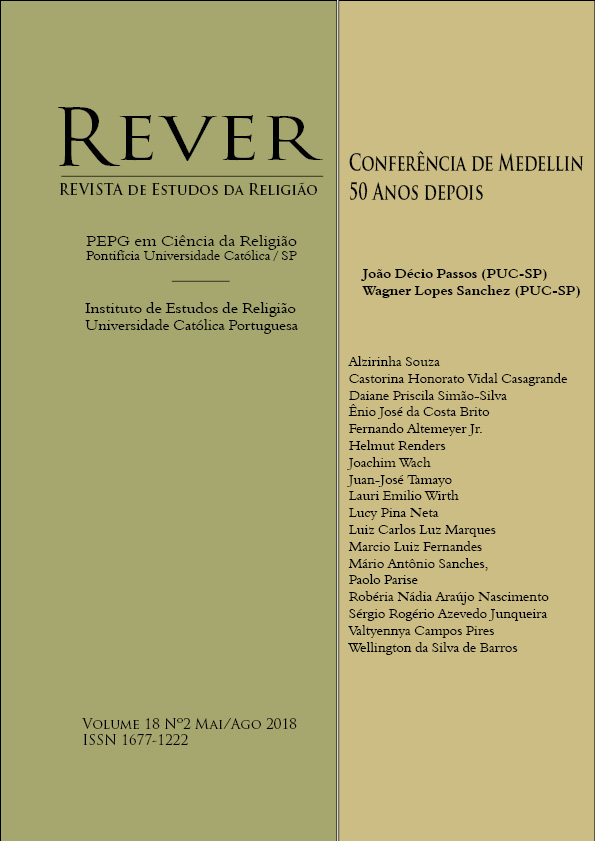Pluralism and Inter-Religious Dialogue at the Medellín Conference
DOI:
https://doi.org/10.23925/1677-1222.2018vol18i2a7Keywords:
Vatican Council II, II Medellin Conference, interreligious dialogueAbstract
The article aims to understand how the II Conference of Medellín, through its concluding document, reflected on pluralism and interreligious dialogue. Medellín represents a milestone for the Catholic Church in the Latin American continent. If at the First Conference held in Rio de Janeiro in 1955 the mainland church was concerned with internal problems such as the shortage of priests, preservation and defense of the faith, that of Medellín reflects on more comprehensive and urgent social problems. With the main objective of reflecting on the role of the church in the specific context of the continent, Medellín has in the Second Vatican Council (1962-1965) its foundations and motivations. It is inspired by the Council that the Medellín Conference faces the challenge of understanding pluralism and harbor the need for interreligious dialogue.
Downloads
Published
Issue
Section
License
Authors who publish in this journal agree with the following terms:- Authors retain copyright, but grant the journal the right of first publication, with the work simultaneously licensed under the Creative Commons BY-NC License.
- Authors are authorized to assume additional contracts separately, for non-exclusive distribution of the work published in this journal (e.g., publishing in an institutional repository or as a book chapter), as long as with acknowledgment of authorship and first publication in this journal.


